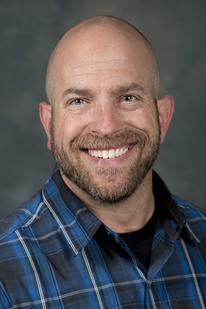
I am broadly trained in physical, economic, and rural geography, as well as sustainability sciences, and I see the value in integrating these multiple perspectives in scholarship. My research interests involve the complexity of coupled social-ecological systems and the human dimensions of global change, specifically as they relate to rural areas, agriculture, natural resource extraction, and recreation and tourism. I am particularly interested in understanding how natural resource-dependent communities impact their local environment and how these impacts facilitate or hinder a transition towards sustainability.
As a human-environment geographer I straddle the worlds of physical and cultural geography, and use geospatial sciences to better understand the relationship between humans and the natural world. Because of my passion for both realms of geography (physical and cultural), I teach a wide variety of courses.
Research Keywords
Sustainability; Socio-Ecological Systems; Rural; GIS; Resource Dependence; Mining; Great Lakes; Iron Range; American West
Courses Taught
GEOG 1414: Physical Geography
GEOG 2306: Environmental Conservation
GEOG 3401: Weather and Climate
GEOG 3481: Urban Ecology
GEOG 4401: Fundamentals of Climate Science
GEOG 4451: Geography of Soils
GIS 3563: Geographic Information Science I: Theory and Analysis
GIS 3564: Geographic Information Science II; Applied GIS
GIS 4533: Distributed GIServices: Mobile and Web-based Solutions
GIS 5571: GIS in Urban Analysis
GIS 5573: GIScience in Regional Sustainability
ES 2005: Environment and Sustainability
ES 4200: Sustainable and Resilient Communities
ES 4612: Field Techniques & Research Design
ES 4090/4097: Internship Preparation
Recent Publications
Fergen, J.T., Bergstrom, R.D., Twiss, M.R., Johnson, L.B., Steinman, A.D., and Gagnon, V. 2022. Updated Census in the Laurentian Great Lakes Watershed: A Framework for Determining the Relationship Between the Population and This Aquatic Resource. Journal of Great Lakes Research. DOI:10.1016/j.jglr/2022.03.004.
Bergstrom, R.D., Johnson, L.B., Sterner, R.W., Bullerjahn, G.S., Fergen, J.T., Lenters, J.D., Norris, P.E., and Steinman, A.D. 2022. Building a Research Network to Better Understand Climate Governance in the Great Lakes. Journal of Great Lakes Research. DOI:10.1016/j.jglr/2022.02.010.
Fergen, J.T., Bergstrom, R.D., Steinman, A.D., Johnson, L.B., and Twiss, M.R. 2022. Community Capacity and Climate Change in the Laurentian Great Lakes Region: The Importance of Social, Human, and Political Capital for Community Response to Climate-driven Disturbances. Journal of Environmental Planning and Management. DOI: 10.1080/09640568.2022.2144164.
Fergen, J. and Bergstrom, R.D. 2021. Social Vulnerability Across the Great Lakes Basin: A County-Level Comparative and Spatial Analysis. Sustainability. 13, 7274. DOI: 10.3390/su13137274
Bergstrom, R.D. and Clarke-Sather, A. 2020. Balancing Socio-Ecological Risks, Politics, and Identity: Sustainability in Minnesota's Copper-Nickel-Precious Metal Mining Debate. Sustainability 12(24), 10286. DOI: 10.3390/su122410286
Bergstrom, R.D. and Harrington, L.M.B. 2019. Embedded in Nature: Challenges to Sustainability in Greater Yellowstone. Sustainability. 11:1459. DOI: 10.3390/su11051459
Bergstrom, R.D. 2018. Defining Sustainability in the Greater Yellowstone Ecosystem. Journal of Sustainable Development. 11(1):32-43. DOI:10.5539/jsd.v11n1p32
Bergstrom, R.D. and L.M.B. Harrington. 2018. Understanding Agents of Change in Amenity Gateways of the Greater Yellowstone Region. Journal of Community Development. 49(2): 145-160. DOI: 10.1080/15575330.2017.1416648
Bergstrom, R.D. 2017. The Curious Case of Cuyuna: Re-envisioning former extractive sites to stimulate local communities. Extractive Industries and Society. 4:860-868. DOI: 10.1016/j.exis.2017.10.005
Weihs, B.J., R.D. Bergstrom, C. Ruffing, and K.K. McLauchlan. 2016. Woody Encroachment of a Riparian Corridor in a Tallgrass Prairie: Dendrochronological Evidence from Kansas, USA. Papers in Applied Geography. 2(1): 1-8. DOI: 10.1080/23754931.2015.1095791